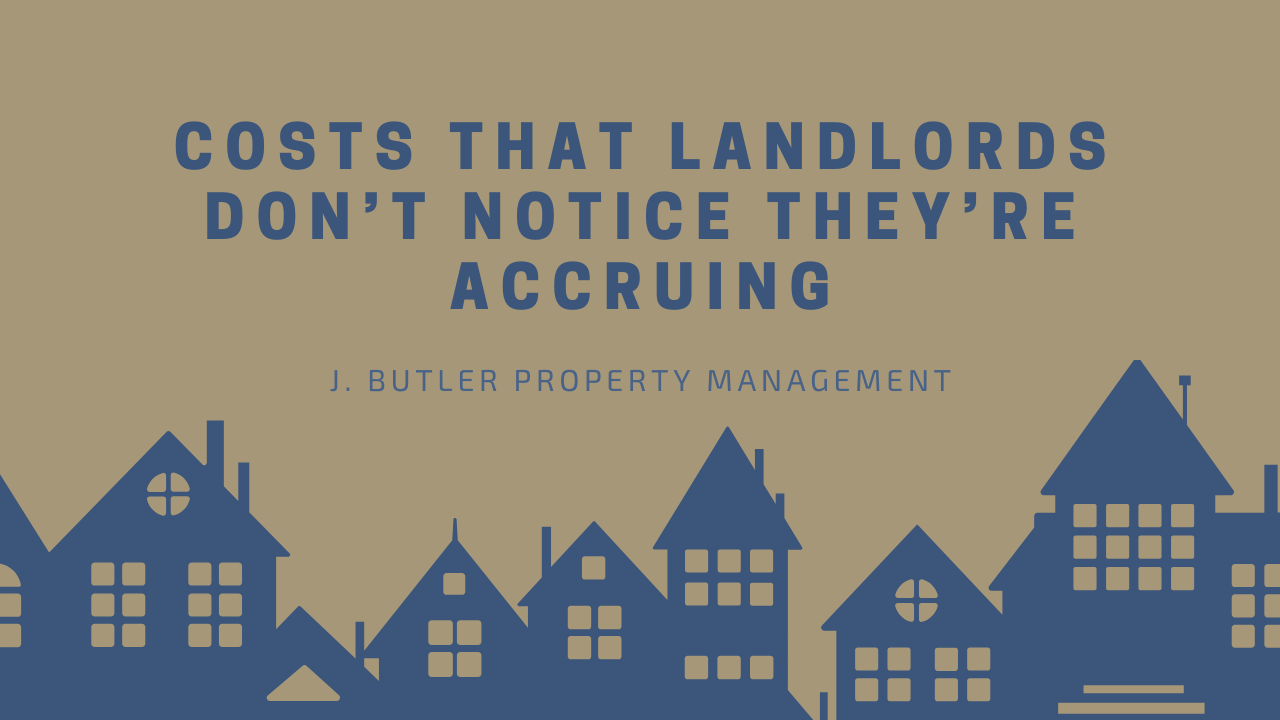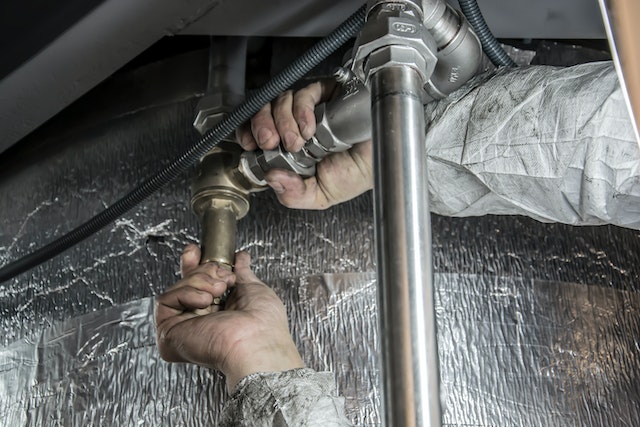
Costs That Landlords Don’t Notice They’re Accruing
October 8, 2024
Costs That Landlords Don’t Notice They’re Accruing
As a landlord, you need to be financially savvy to ensure optimum returns on investment. Overspending on expenses will only hurt your bottom line. As such, to ensure you keep your ROI high, make sure to be mindful of the following expenses.
Common Unnoticed Costs
Vacancy Costs
Landlords often underestimate the financial impact of vacant properties, and costs can quickly add up. Each day a rental unit is unoccupied means lost rental income that cannot be recovered. Delays in finding new tenants or extended turnover periods for repairs can take a serious toll on cash flow.
Beyond the obvious loss of rent, hidden costs also accumulate. Utilities like electricity, gas, and water must still be paid to keep the property functional, even without a tenant. Maintenance, such as lawn care, pest control, and routine inspections, are necessary to maintain the property’s condition and appeal.
Insurance is another ongoing expense during vacancy. In fact, some insurers charge higher premiums for vacant properties due to the increased risk of theft, vandalism, or unreported damage. This adds further strain on finances.

Extended vacancies not only result in lost income but also increase operational costs. These combined factors reduce a landlord’s overall return on investment, making it crucial to minimize vacancy periods and manage related expenses effectively.
Maintenance and Repair Delays
Procrastinating on small repairs may seem like a way to save money in the short term, but it often leads to much larger and more expensive problems in the long run. Minor issues, such as a small leak in a pipe or a crack in a wall, may appear insignificant at first, but these problems can quickly escalate if not addressed promptly.
For instance, a minor water leak left unattended could eventually lead to severe water damage, mold growth, or even structural issues, all of which require costly repairs and extensive restoration work. In addition to the financial burden, deferred maintenance can negatively impact tenant satisfaction.
Tenants who see that their repair requests are consistently ignored or delayed may feel undervalued and could choose to leave when their lease expires, resulting in turnover costs for the landlord. On the flip side, promptly addressing minor repairs not only helps maintain the property’s condition but also builds trust and rapport with tenants.

Quick responses to repair requests can also extend the lifespan of appliances, systems, and the overall property. By fixing small issues before they turn into major problems, landlords can avoid more substantial expenses down the road while preserving the long-term value of their investment. Preventive maintenance is a key factor in maintaining profitability.
Tenant Turnover Expenses
The costs associated with tenant turnover are often overlooked but can significantly impact a landlord’s bottom line. When a tenant moves out, there are several expenses involved in preparing the property for the next occupant. Cleaning the unit, especially if the previous tenant left it in poor condition, often requires professional services.
Additionally, marketing the property to attract new tenants incurs costs, whether it’s through online listings, professional photos, or real estate agents. Repairs are another inevitable expense. Landlords may need to repaint, fix appliances, or address wear and tear left behind by the previous tenant.
One of the most substantial hidden costs is the loss of rental income during the vacancy period. Each day without a tenant means no rent is coming in, which can quickly accumulate if the property remains unoccupied for long. The turnover process also takes time and effort to manage, from showing the property to screening potential tenants.

When you add up cleaning, repairs, advertising, and lost rent, the costs of tenant turnover can easily run into hundreds or even thousands of dollars. Being mindful of these expenses can help landlords better prepare for and minimize the financial impact of turnover periods.
Utility Costs
Even though tenants usually cover utilities like electricity and gas, landlords often remain responsible for certain bills, such as water, garbage collection, or shared utilities in multi-unit buildings. These expenses, though manageable individually, can accumulate and escalate over time if not monitored closely.
Water bills, for instance, can increase due to tenant overuse, undetected leaks, or inefficient plumbing. Garbage collection costs might rise if tenants generate more waste than expected, requiring additional pickups. Shared utilities like hallway or outdoor lighting in multi-unit buildings can also add to overall costs, especially if energy-efficient upgrades are not in place.
Over time, these rising utility costs can eat into a landlord’s profits. Without regular monitoring, landlords may overlook opportunities to control these expenses. Simple measures like installing water-saving devices, upgrading to energy-efficient lighting, and performing regular inspections can help manage utility usage.
Regularly reviewing utility bills can also help landlords spot unusual increases early. By keeping a close watch on these shared costs, landlords can minimize utility expenses and protect their bottom line from unexpected spikes.
Unexpected Emergency Repairs
Landlords can face costly surprises from unexpected emergencies like burst pipes, electrical problems, or HVAC failures. These urgent repairs often require immediate attention, which typically comes at a higher price, especially if the issue occurs outside of regular business hours.

Emergency service fees can quickly add up, and landlords without an emergency fund may struggle to cover these sudden expenses. In addition to repair costs, landlords might face additional expenses if tenants are inconvenienced by the emergency.
For instance, a broken HVAC system during extreme weather could lead to tenant complaints or even legal issues if the property becomes uninhabitable. In some cases, landlords may have to provide temporary housing or compensate tenants for the disruption.
To mitigate the impact of such emergencies, landlords should set aside funds specifically for unforeseen repairs. Regular maintenance and property inspections can also help prevent these problems from occurring or escalating into more serious and costly issues.
By planning ahead and being financially prepared, landlords can handle emergency situations efficiently, reduce stress, and protect their profitability. Being proactive about unexpected expenses ensures the property remains in good condition and tenants stay satisfied.
Conclusion
These are important costs to keep in mind when renting out a property. If you’d like to simplify the process, consider working with a property management expert.
J. Butler Property Management is here to take care of all the details, allowing you to focus on what matters most to you. As a full-service property management company serving Boston and southern New Hampshire, we offer comprehensive solutions to simplify your rental experience. Contact us today to learn how we can help!


